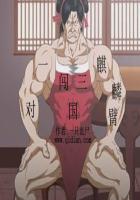WAYFARERS ALL
The Water Rat was restless, and he did not exactly know why. To all appearance the summer's pomp was still at fullest height, and although in the tilled acres green had given way to gold, though rowans were reddening, and the woods were dashed here and there with a tawny fierceness, yet light and warmth and colour were still present in undiminished measure, clean of any chilly premonitions of the passing year. But the constant chorus of the orchards and hedges had shrunk to a casual evensong from a few yet unwearied performers; the robin was beginning to assert himself once more; and there was a feeling in the air of change and departure. The cuckoo, of course, had long been silent; but many another feathered friend, for months a part of the familiar landscape and its small society, was missing too and it seemed that the ranks thinned steadily day by day. Rat, ever observant of all winged movement, saw that it was taking daily a southing tendency; and even as he lay in bed at night he thought he could make out, passing in the darkness overhead, the beat and quiver of impatient pinions, obedient to the peremptory call.
Nature's Grand Hotel has its Season, like the others. As the guests one by one pack, pay, and depart, and the seats at the table-d'hote shrink pitifully at each succeeding meal; as suites of rooms are closed, carpets taken up, and waiters sent away; those boarders who are staying on, en pension, until the next year's full re-opening, cannot help being somewhat affected by all these flittings and farewells, this eager discussion of plans, routes, and fresh quarters, this daily shrinkage in the stream of comradeship. One gets unsettled, depressed, and inclined to be querulous. Why this craving for change? Why not stay on quietly here, like us, and be jolly? You don't know this hotel out of the season, and what fun we have among ourselves, we fellows who remain and see the whole interesting year out. All very true, no doubt the others always reply; we quite envy you--and some other year perhaps--but just now we have engagements--and there's the bus at the door--our time is up! So they depart, with a smile and a nod, and we miss them, and feel resentful. The Rat was a self- sufficing sort of animal, rooted to the land, and, whoever went, he stayed; still, he could not help noticing what was in the air, and feeling some of its influence in his bones.
It was difficult to settle down to anything seriously, with all this flitting going on. Leaving the water-side, where rushes stood thick and tall in a stream that was becoming sluggish and low, he wandered country- wards, crossed a field or two of pasturage already looking dusty and parched, and thrust into the great sea of wheat, yellow, wavy, and murmurous, full of quiet motion and small whisperings. Here he often loved to wander, through the forest of stiff strong stalks that carried their own golden sky away over his head--a sky that was always dancing, shimmering, softly talking; or swaying strongly to the passing wind and recovering itself with a toss and a merry laugh. Here, too, he had many small friends, a society complete in itself, leading full and busy lives, but always with a spare moment to gossip, and exchange news with a visitor. Today, however, though they were civil enough, the field-mice and harvest-mice seemed preoccupied. Many were digging and tunnelling busily; others, gathered together in small groups, examined plans and drawings of small flats, stated to be desirable and compact, and situated conveniently near the Stores. Some were hauling out dusty trunks and dress-baskets, others were already elbow-deep packing their belongings; while everywhere piles and bundles of wheat, oats, barley, beech-mast and nuts, lay about ready for transport.
`Here's old Ratty!' they cried as soon as they saw him. `Come and bear a hand, Rat, and don't stand about idle!'
`What sort of games are you up to?' said the Water Rat severely. `You know it isn't time to be thinking of winter quarters yet, by a long way!'
`O yes, we know that,' explained a field-mouse rather shamefacedly;`but it's always as well to be in good time, isn't it? We really MUST get all the furniture and baggage and stores moved out of this before those horrid machines begin clicking round the fields; and then, you know, the best flats get picked up so quickly nowadays, and if you're late you have to putup with ANYTHING; and they want such a lot of doing up, too, before they're fit to move into. Of course, we're early, we know that; but we're only just ****** a start.'
`O, bother STARTS,' said the Rat. `It's a splendid day. Come for a row, or a stroll along the hedges, or a picnic in the woods, or something.'
`Well, I THINK not TO-DAY, thank you,' replied the field- mouse hurriedly. `Perhaps some OTHER day--when we've more TIME----'
The Rat, with a snort of contempt, swung round to go, tripped over a hat-box, and fell, with undignified remarks.
`If people would be more careful,' said a field-mouse rather stiffly,`and look where they're going, people wouldn't hurt themselves--and forget themselves. Mind that hold-all, Rat! You'd better sit down somewhere. In an hour or two we may be more free to attend to you.'
`You won't be "free" as you call it much this side of Christmas, I can see that,' retorted the Rat grumpily, as he picked his way out of the field.
He returned somewhat despondently to his river again--his faithful, steady-going old river, which never packed up, flitted, or went into winter quarters.
In the osiers which fringed the bank he spied a swallow sitting. Presently it was joined by another, and then by a third; and the birds, fidgeting restlessly on their bough, talked together earnestly and low.
`What, ALREADY,' said the Rat, strolling up to them. `What's the hurry? I call it simply ridiculous.'
`O, we're not off yet, if that's what you mean,' replied the first swallow.















